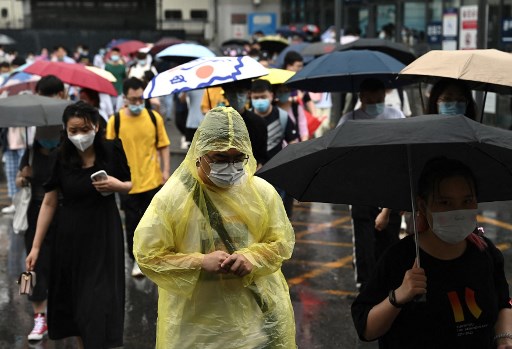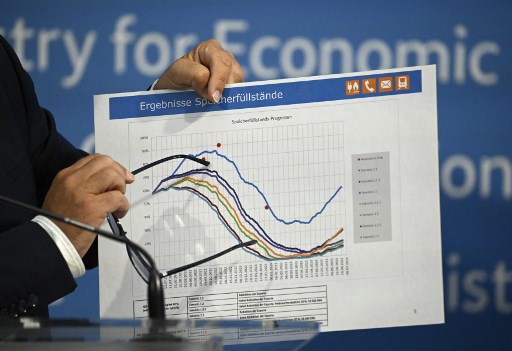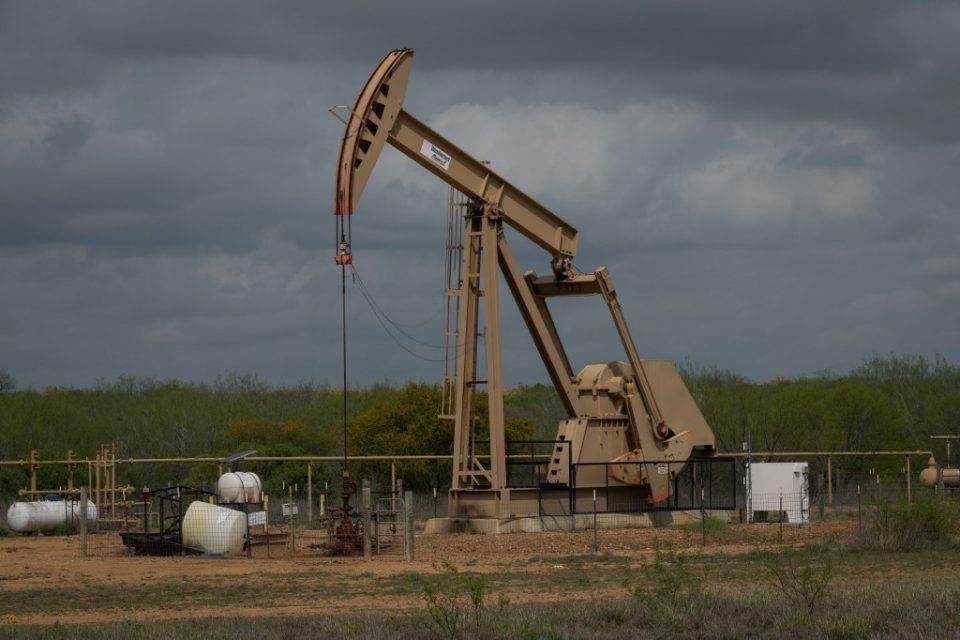
HONG KONG, China (AFP) — Most Asian markets reversed early losses Tuesday and oil continued its recent rally after China slashed the quarantine time for visitors, fuelling hope for a boost to the embattled economy.
The news came as Beijing and Shanghai appeared to have contained a Covid outbreak that had forced officials to impose lockdowns that had compounded global supply chain snarls.
Authorities said inbound travellers would now only have to quarantine for 10 days, instead of the three weeks that had been in place during the pandemic.

The news provided a much-needed boost to shares, which had mostly been down on renewed concerns about central bank interest rate hikes and soaring inflation.
On Monday the central People’s Bank of China pledged to provide support to the world’s number two economy.
The gains extended a rally enjoyed last week on bets that a possible recession next year could allow finance chiefs to ease up on their monetary tightening campaign.
“This relaxation sends the signal that the economy comes first,” Li Changmin, at Snowball Wealth, said. “It is a sign of the importance of the economy at this point.”
After spending the morning in the red, Hong Kong, Shanghai, Tokyo, Seoul and Wellington turned higher, while there were also gains in Sydney, Manila and Bangkok. Mumbai, Taipei and Jakarta slipped while Singapore was flat.
London, Paris and Frankfurt surged at the open.
However, Huang Yanzhong, of the New York-based Council on Foreign Relations warned: “It’s not surprising that China has managed to return to so-called zero, after all the huge effort it’s made.
“But that doesn’t mean it can claim a thorough and durable victory because it didn’t eradicate the virus,” he said. “Unless they thoroughly fence off Beijing and Shanghai, the virus could sneak in anytime.”
Still, while the inflation and rate situation remains a worry, compounded by the war in Ukraine, some commentators remain relatively upbeat as the second half of the year approaches.
Market strategist Louis Navellier said in a note: “While it’s sobering that the first half of the year is the worst since 1970, history also says that when the first half of the year is down at least 15 percent the second half of the year is up every single time with an average return of 24 percent.”
And Ben Laidler, a global markets strategist at eToro, added that a lot of the expected economic weakness had been largely factored in by dealers.
“Much is already discounted by markets, which may be in ‘bad news is good news’ mode, as a slowdown cools inflation and interest rate fears,” he said.
“A ‘less bad’ gradual easing of inflation risks is possible, as is a slowdown — not recession — driving a ‘U-shaped’ rebound. The focus for investors is on cheap and defensive assets while managing rising risks.”
Oil prices surged more than one percent to build on a rally that has seen Brent and WTI pile on more than eight percent since Wednesday. Both main contracts had fallen heavily earlier in the month on recession worries.


The gains have come on the back of a pick-up in demand from China, while supply fears have been raised by political crises in producers Libya and Ecuador.
“The rhetoric around declaring victory in Shanghai over Omicron seems to be prompting Asian traders to continue buying,” said OANDA’s Jeffrey Halley.
Meanwhile, Moody’s ratings agency confirmed Russia had defaulted on foreign debt for the first time in a century after bondholders did not receive $100 million in interest payments.
The missed payments follow a series of Western sanctions that have increasingly isolated Moscow following its invasion of Ukraine.
Russia lost the last avenue to service its foreign-currency loans after the United States removed an exemption last month that allowed US investors to receive Moscow’s payments.
– Key figures at around 0720 GMT –
Tokyo – Nikkei 225: UP 0.7 percent at 27,049.47 (close)
Hong Kong – Hang Seng Index: UP 0.6 percent at 22,374.65
Shanghai – Composite: UP 0.9 percent at 3,409.21 (close)
London – FTSE 100: UP 0.9 percent at 7,322.05
West Texas Intermediate: UP 1.6 percent at $111.32 per barrel
Brent North Sea crude: UP 1.6 percent at $117.00 per barrel
Dollar/yen: UP at 135.54 yen from 135.48 yen on Monday
Euro/dollar: UP at $1.0595 from $1.0583
Pound/dollar: UP at $1.2287 from $1.2268
Euro/pound: DOWN at 86.22 pence from 86.24 pence
New York – Dow: DOWN 0.2 percent at 31,438.26 (close)
© Agence France-Presse








